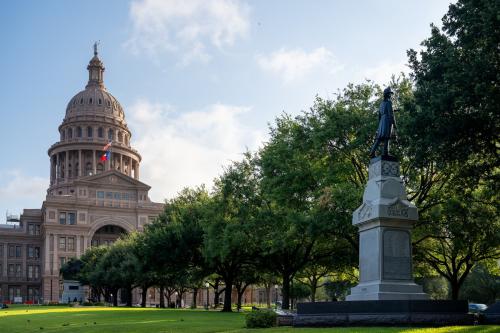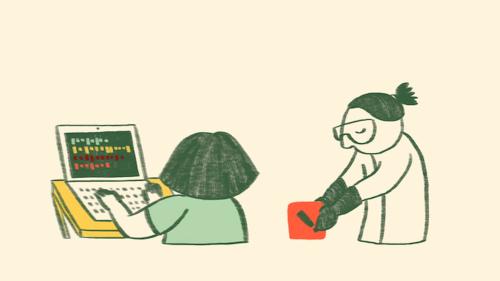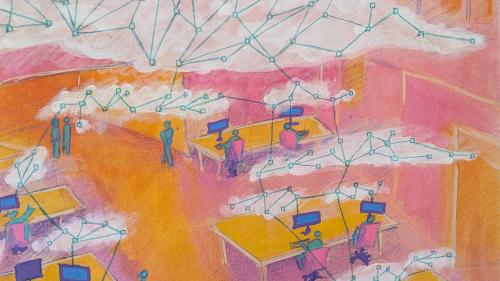The following testimony was given before the House Oversight Subcommittee on Cybersecurity, Information Technology, and Government Innovation for a hearing entitled “Shaping Tomorrow: The Future of Artificial Intelligence” on September 17, 2025. Watch the full testimony.
Chairwoman Mace, Ranking Member Brown, and distinguished members of the Subcommittee on Cybersecurity, Information Technology, and Government Innovation: Thank you for the invitation to testify on the future of artificial intelligence. I am Nicol Turner Lee, a senior fellow in the Governance Studies program and director of the Center for Technology Innovation at the Brookings Institution. With a history of over 100 years, Brookings is committed to evidence-based, nonpartisan research in a range of focus areas. My research expertise encompasses data collection and analysis around regulatory and legislative policies that govern telecommunications and high-tech industries, along with the impacts of innovation, artificial intelligence, and the digital divide on vulnerable populations. I am also the author of “Digitally Invisible: How the Internet is Creating the New Underclass,” which explores the latter point. I am also testifying in my individual capacity.
Artificial intelligence (AI) is not the future—it is here. AI use has been firmly established in several sectors for years in the United States and globally. As more advanced, capable AI tools, including generative and agentic models, become more accessible and technically mastered, the technology’s promises will also become clearer or realized by individuals, organizations, and communities. Today, several workplaces require use of AI by workers, and one report shows 92% of companies have plans to increase their investment in the technology.1 Some companies already require employees to use the technology in hopes of benefiting from its promises to improve efficiency.2 Companies are reporting that they’ll spend over $375 billion on technology globally in 2025.3 In just about every sector, companies are figuring out the role of AI in enhancing their productivity. They are also figuring out the most appropriate investments in talent to support AI innovation.
Beyond enterprise use cases, AI is poised to transform the delivery of critical services in domains, such as government services, health care, and education. In all three domains, the technology can help increase efficiency and personalized access, in some cases benefiting marginalized individuals. For example, AI-powered translation tools allow individuals to seamlessly communicate across languages, general-purpose chatbots provide users with a wealth of information at their fingertips, and personalized tutoring tools can tailor educational content to those with unique learning needs.
Although AI adoption is accelerating, its development is far from over. Frontier labs, firms, and research institutions are building both general-purpose models and domain-specific models, including spatial intelligence tools, legal and finance platforms, and search tools for doctors.4 Research indicates AI may accelerate some breakthroughs, including in the development of new drugs.5 AI tools can also revolutionize weather forecasting and monitoring amid a changing climate.6 Given this potential, governments across the world are launching billion-dollar initiatives to collect language-specific training data and build sovereign AI infrastructure to support model development and research capacity.7 The future of AI technology also includes embracing the “physical world” where highly trained robots are entering manufacturing and transportation in ways that may ultimately impact the workforce.
With so much more on the horizon in AI, it is imperative to have the correct balance of innovation and regulation to ensure that consumers, institutions, and critical infrastructure are safeguarded from AI’s risks and other potential harms, including workforce displacement, bias and discrimination, or the irreparable errors of machines. In my testimony today, I will offer three points that Congress should be considering as critical tenets around the future of AI: the need for responsible and ethical frameworks in AI design and governance; the importance of a ready and agile talent pipeline and workforce; and the importance of monitoring the unknowns in AI innovation to ensure its safety and security.
-
Footnotes
- Mayer, Hannah, Lareina Yee, Michael Chui, and Roger Roberts. “Superagency in the Workplace: Empowering People to Unlock AI’s Full Potential.” McKinsey & Company, January 28, 2025. https://www.mckinsey.com/capabilities/mckinsey-digital/our-insights/superagency-in-the-workplace-empoweringpeople-to-unlock-ais-full-potential-at-work.
- Abril, Danielle. “No AI, no job. These companies are requiring workers to use the tech.” The Washington Post, June 3, 2025. https://www.washingtonpost.com/business/2025/06/03/ai-workplace-duolingo-shopify-employees/.
- DePillis, Lydia. “The A.I. Spending Frenzy Is Propping Up the Real Economy, Too.” The New York Times, August 27, 2025. https://www.nytimes.com/2025/08/27/business/economy/ai-investment-economic-growth.html.
- Forbes. “Forbes 2025 AI 50 List.” April 10, 2025. https://www.forbes.com/lists/ai50/.
- Fahlis, Yao, Paul Mandel, Charles Crain, Betty Liu, and David Fuller. “Accelerating drug discovery with Artificial: a whole-lab orchestration and scheduling system for self-driving labs.” arXiv, April 1, 2025. https://arxiv.org/html/2504.00986#:~:text.
- University of Cambridge. “Fully AI driven weather prediction system could start revolution in forecasting.” March 20, 2025. https://www.cam.ac.uk/research/news/fully-ai-driven-weather-prediction-system-could-start-revolution-in-forecasting.
- The Economist. “Can Nvidia Persuade Governments to Pay for ‘Sovereign’ AI?,” July 13, 2025. https://www.economist.com/business/2025/07/13/can-nvidia-persuade-governments-to-pay-for-sovereign-ai.; Maslej, Nestor, Loredana Fattorini, Raymond Perrault, Yolanda Gil, Vanessa Parli, Njenga Kariuki, Emily Capstick, et al. “Artificial Intelligence Index Report 2025.” Stanford, CA: AI Index Steering Committee, Institute for Human-Centered AI, Stanford University, Stanford, CA, April 2025. https://hai.stanford.edu/assets/files/hai_ai_index_report_2025.pdf.
The Brookings Institution is committed to quality, independence, and impact.
We are supported by a diverse array of funders. In line with our values and policies, each Brookings publication represents the sole views of its author(s).



Commentary
TestimonyShaping the future of AI through responsible innovation
Nicol Turner Lee's testimony to the House Oversight Subcommittee on Cybersecurity, Information Technology, and Government Innovation
September 23, 2025